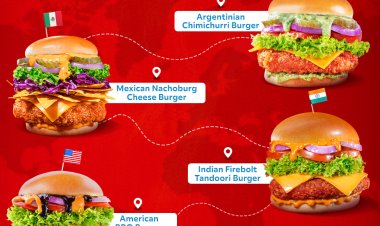CMOs must integrate AI to future-proof marketing strategies
Forrester Research advises CMOs to invest time in learning AI, with many using AI tools to streamline routine tasks and save time

A recent report by Forrester Research outlines the transformative effects of artificial intelligence (AI) on the role of chief marketing officers (CMOs). The report predicts that by the end of 2024, experience with generative AI will be a requirement in 20% of new CMO job descriptions.
Despite this prediction, an analysis of 165 US CMO job postings revealed no mention of AI responsibilities. Industry experts express surprise at this lag, noting that CMOs are expected to lead AI initiatives.
The report advises that instead of hiring AI specialists, CMOs should appoint AI transformation drivers within each marketing subfunction. This approach ensures a cohesive strategy while avoiding fragmented accountability.
The report also states that CMOs must dedicate time to learning about AI, with many using AI tools to save time on routine tasks. This learning often occurs outside regular work hours, reflecting the high priority placed on staying current with AI advancements.
The advancement of AI requires CMOs to rethink their partnerships by collaborating with chief technology officers. Additionally, CMOs are shifting their focus towards technology partners, with companies like Estée Lauder and Coca-Cola teaming up with Microsoft to accelerate AI initiatives.
The role of the CMO is expanding to include setting AI strategy for marketing. This strategic mindset is necessary as AI becomes an integral part of marketing operations. Commoditized tasks will increasingly be handled by AI, while human teams focus on higher-value activities.
Shiv Singh, a seasoned marketing leader with stints at PepsiCo, Visa, Expedia, and LendingTree, predicts that “AI is going to turn the marketing function inside out.”
The report by MMA Global India & GroupM also mentions that marketers value high-quality, authentic internal data like brand essence, past communication, consumer insights, cohort responses, platform performance, packaging details, pricing, and customer reviews to ensure AI models are authentically trained for real-world application.
The report also adds that organizational transformation is vital for maximizing AI's impact in marketing. This involves integration across finance, technology, customer and market insights (CMI), sales, and talent management, with rapid evolution in budgeting, talent management, and a "Test and Learn" approach.
Additionally, the investment in data and marketing technology (martech) is increasing, with shared ownership of implementation and utilization among marketing, finance, and technology leaders.
AI is driving transformation in agencies, fostering new integrated models centered on AI-enabled platforms for seamless collaboration and co-creation.

 Sumit Rawat
Sumit Rawat 










